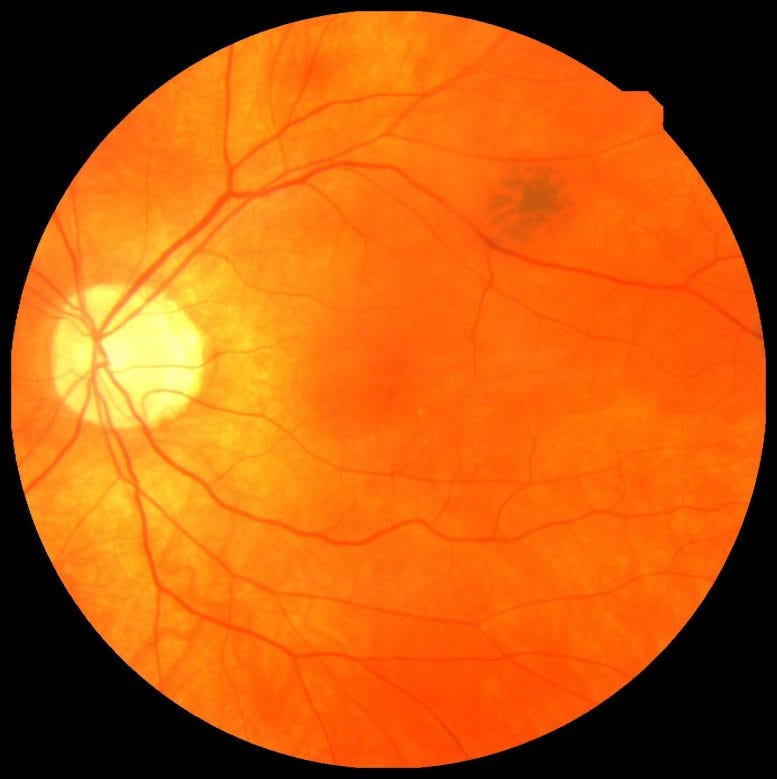Artificial Intelligence Could Help Detect Onset of Cardiovascular Disease
A.I. could reduce costs and detect Heart Disease earlier.
A scan of the eye. Credit: UK Biobank
They says the human eyes are the window to the soul. They might also be the oracle of cardiovascular health, thanks to A.I.
Deep learning is a complex series of algorithms that enable computers to identify patterns in data and to make predictions.
Impact of A.I. on Cardiovascular Health
We always had a hunch this was …
Keep reading with a 7-day free trial
Subscribe to AI Supremacy to keep reading this post and get 7 days of free access to the full post archives.



